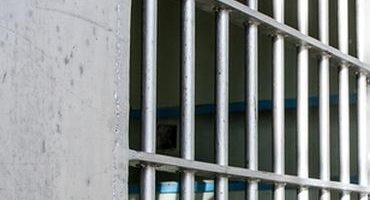There is no doubt that the pre-trial detention of board members can paralyze the operation of an entire company. Management board members are aware of this and when they make business decisions, they reckon with this risk. Unfortunately the pre-trial detention is often overused by the prosecutors. There is an “umbrella” that can protect the CEO from criminal liability in the first place – the compliance officer. The compliance officer is the one who is supposed to ensure that the company is operating in compliance with the applicable regulations and to prevent potential abuse. This raises several questions and concerns. Does the compliance officer have real tools to do so? Does he or she have a real influence on the decisions made by the company’s board? And finally – if a crime is committed – what will the prosecutor do? Is the prosecutor going to arrest CEO or compliance officer?
WHO IS A COMPLIANCE OFFICER?
In the most general terms, the compliance officer is the person responsible for the company’s compliance with applicable regulations, as well as the implementation of procedures to prevent irregularities. This is due to their area of activity, which usually focuses on analyzing the risk of non-compliance with applicable regulations, protection of whistleblowers, and analysis of business partners. The compliance officer should also conduct internal training for the company’s employees to raise their awareness of the risks involved.
The main areas where compliance risks are present are anti-corruption and other frauds. Others are issues related to implementing effective mechanisms to protect whistleblowers and conducting internal investigations.
As reported, in Poland in the vast majority of cases (84%), the compliance officer’s superior is the chairman or another board member. Such a relationship of dependency must be viewed negatively in terms of the independence of the compliance officer. Since they are supposed to prevent irregularities, they should be as independent as possible within the company. The situation is even more complicated when the compliance officer receives a report from a whistleblower about irregular activities of the CEO or a board member. If they report to the aforementioned persons, then their ability to act is limited.
What impact does compliance officer have on a company?
Ideally, the compliance officer should be subordinated to the board as a whole. Another way out of the current situation is to organize an independent unit that would answer only to the supervisory board or, if none has been appointed, to the shareholders’ meeting. It should be noted that all the above factors are shaped by corporate governance. In essence, it is the latter that gives shape to the order adopted in the company. Getting it right will greatly enhance the work of the compliance officer.
At the same time, in only half of the cases does the compliance officer attend to the board meetings. In addition, only one in three compliance officers attending to the board meetings has a co-deciding vote. But it is at strategy meetings that new solutions and concepts for the development of the company are proposed. Some of these may expose the company, or its managers, to criminal and civil liability. Meanwhile two out of three compliance officers have no real influence. Even more worrying is the fact that almost one in three compliance officers do not attend strategy meetings at all. The above raises a question whether they can then exercise their competences to the full.
On the other hand, however, the absence of an advisory and co-decisive vote undoubtedly affects the scope of criminal liability for offences committed in connection with the operation of the company. Consequently, the question of possible arrest is also shaped differently.
WHO WILL BE DETAINED?
It all depends on the compliance officer’s range of competence and knowledge. As already mentioned, the main task of the compliance officer is to analyze the risk of irregularities. This can only be done comprehensively if they have an overview of all relevant company’s documentation. The responsibility of the compliance officer can only be considered if they have a complete picture of the documentation. It is a condition enabling them to fully exercise their competence. It would be impossible to impute criminal liability to a person who is not entitled to attend a strategy meeting at which a decision giving rise to criminal law consequences is made.
The above issue is slightly different when the compliance officer is invited to such meetings. Then a lot depends on their vote. If they support the idea of commiting an illegal act, then liability could be considered. However, we would still be talking about criminal liability for an action and not an omission. This is because the compliance officer would have acted rather than remain inactive in the face of the decision-makers’ actions. If they voted against the introduction of a questionable solution, then they would not be criminally liable either. This is because, as compliance officer, they took all possible measures to prevent the decision-makers from committing the offence.
Prosecutor’s point of view
Going further, it does not seem that the prosecutor, when requesting the arrest of a decision-maker (i.e., the CEO), would also apply for the arrest of the compliance officer. Yes, they are the person responsible for preventing the occurrence of fraud. But the prosecution would have to prove that the grounds for the application of pre-trial detention have occurred. That would include general as well as specific grounds as stated in Polish Code of Criminal Procedure. In this context, it would be particularly difficult to prove that the evidence collected shows a high probability that the compliance officer participated in or assisted in the commission of the offence.
CONCLUSION
In conclusion, it should be noted that the chances of a compliance officer being arrested are usually slim. This is because they would have to be involved in the decision-making process resulting in the commission of the offence.
In addition, they would have to know full documentation and a complete picture of the case. As mentioned before, unfortunately that is also not the rule in Polish conditions. At the same time, the significance of the involvement of the compliance officer in the company’s affairs must be emphasized. It considerably reduces the risk of criminal liability of the decision-makers. But it is only possible of they have a full picture of the company’s situation. Then they are able to effectively counteract potential risks and eliminate undesirable actions. Including those that could protect decision-makers when making strategic decisions.
To answer the title question – pre-trial detention for the CEO or compliance officer? For neither, if there is full cooperation between the two.
The full version of the arcticle is available in Polish here.























